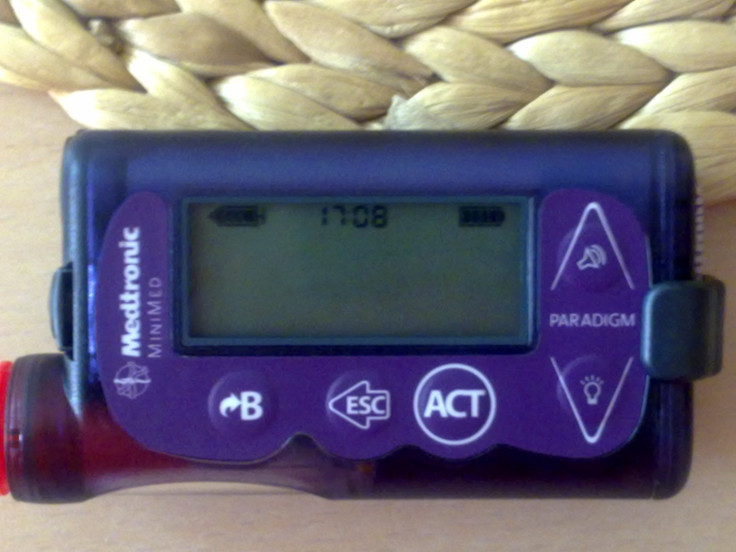Medtronic MiniMed 'Artificial Pancreas' System For Diabetics Approved By FDA

The U.S. Food and Drug Administration (FDA) approved the MiniMed 530G system, a new type of insulin pump for people with diabetes. The device is being hailed as a step toward the development of an artificial pancreas. Manufactured by Medtronic, a Minneapolis-based heart device company, the MiniMed 530G is distinguished from other insulin pumps by its ability to sense when a person’s blood sugar levels get dangerously low, and then to withhold insulin accordingly.
“We are hopeful that advances such as this and improvements in the accuracy of continuous glucose sensors will help people with diabetes strive for better control of their diabetes,” said Dr. Richard M. Bergenstal, professor of medicing at the University of Minnesota, in a company announcement.
People living with type 1 diabetes, formerly known as juvenile onset diabetes, cannot produce insulin, the hormone responsible for bringing glucose in the bloodstream into cells to use as energy. Normally, the pancreas secretes insulin in amounts based on the quantity of circulating blood sugar. Because those with type 1 diabetes cannot regulate their blood sugar levels on their own, they sometimes wear insulin pumps to continually inject insulin at a base rate, and provide extra insulin when blood sugar is high after meals. More type 2 diabetics are beginning to use insulin pumps as well, according to the American Diabetes Association.
The MiniMed 350G safeguards against one of the dangers of insulin pumps: hypoglycemia, or low blood sugar. People on insulin therapy who miss meals or administer too much insulin, could suffer from low blood sugar resulting in unconsciousness and possibly death. If an individual wearing the MiniMed 530G system has their blood sugar dip below a certain threshhold, usually set by the provider between 60-90 mg/dL, an alarm will go off. If the person is sleeping or cannot react to the alarm, insulin delivery will be suspended for two hours. In tests, the device has been able to detect 93 percent of hypoglycemic episodes.
The FDA has approved the device for ages 16 and up. Medtronic, Inc. will pursue post-approval study for children ages 2 and older. The MiniMed 350G is the first approved device as part of an FDA program aimed at bringing a replacement pancreas to the market. Ideally, the ultimate product will control a diabetic's glucose levels continuously with minimal-to-no action by the patient.



























